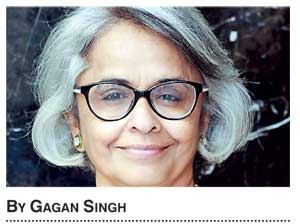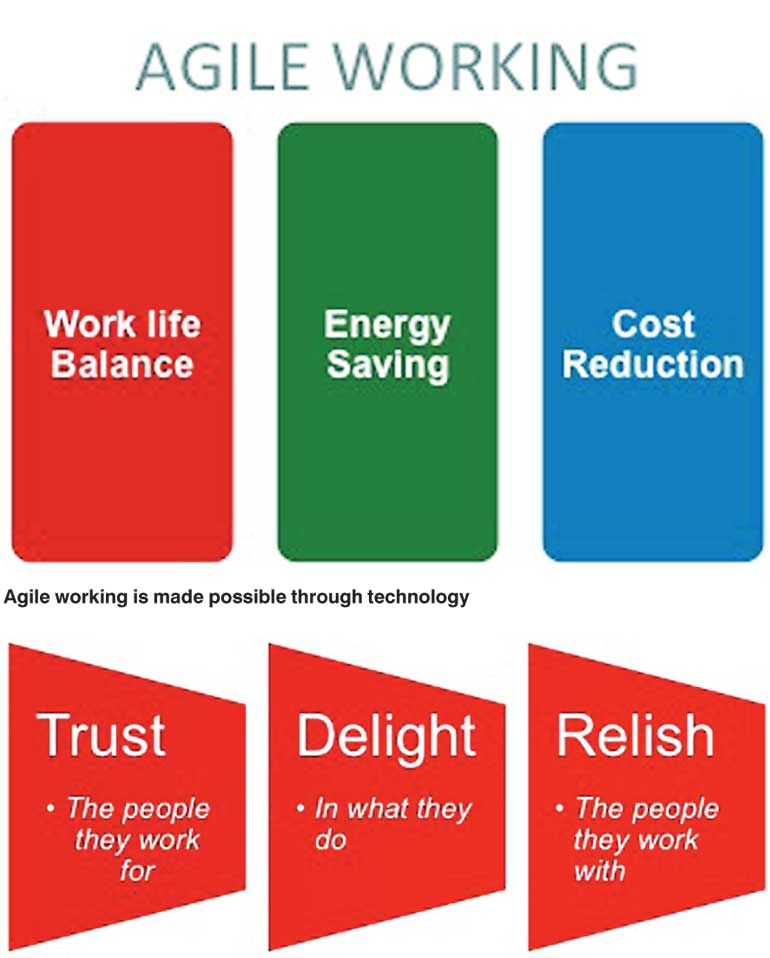Friday Feb 20, 2026
Friday Feb 20, 2026
Tuesday, 14 June 2016 00:06 - - {{hitsCtrl.values.hits}}
One of the key aspects of planning commercial real estate is to understand how the traditional workplace has been replaced by new working methods. The era of using desktop computers, having a permanent workstation, individual landlines, and making copious  print-outs is likely to become out-of-date very soon as new workplace methods are introduced.
print-outs is likely to become out-of-date very soon as new workplace methods are introduced.
It is well-known that technology creates a decentralised organisation but the balance between centralising and decentralising depends on the organisation concerned and also on its culture. It is noticeable that the Sri Lankan workplaces that JLL deals with rely on a plethora of hard and soft technologies such as smart phones, laptops, tabs, Microsoft links, email, cloud facilities, WebEx and online marketing channels such as ‘Facebook’, other such websites and software systems that are customised.
Interestingly, Sri Lanka is in the latent stage of becoming a fully-fledged digitalised economy. National internet penetration has reached over 25% (InternetWorldStats.com) in the last five years and internet use is higher in the Western Province with the proliferation of high-quality affordable smart phones. As a result, the use of smart phones for official purposes is also growing.
One of the ways that workplace space is being revolutionised is through the agile working concept provided by technology that allows home-based and agile working to slowly infiltrate the Sri Lankan working environment. This impinges on three value generation aspects, especially for employees and for end-users.
Firstly, certain employees who work from home, benefit by having a more balanced work life that gives them more flexibility, time with family and allows them to make use of time more productively. This, in turn, helps the organisation to reduce overheads and the employee to save on travelling time and associated expenses.

Key aspects of leading workplace standards
A publishing company has said that the use of a virtual machine, a technology provided by Microsoft, creates a server that replicates a real server, is giving it a 25% cost saving. A well-known Sri Lankan financial institution uses only Apple iPads and e-mails for online board meetings as opposed to using printed documents and this saves paper. Further, the use of cloud facilities has made certain organisations more secure on data security with all data consolidated onto one secure platform.
It is widely known that, today, decisions are made in real time and this requires real time data which depends heavily on connectivity, reliability and disaster recovery of systems and a quick response timeframe.
For instance, if we look at a multinational company, we can see that their field staff depends on smart phones as point of sale to book orders from retailers and wholesalers by using a customised sales order application and that this makes their work more effective and efficient. In the event of a natural disaster that affects a manufacturing facility, the real time data and interconnectivity help its management make quick decisions after consulting the regional/international divisions.
Technology confers enhanced productivity. However, it can also create work-related stress and mechanically driven tasks which can become monotonous over time. Therefore, certain soft facilities need to be implemented to improve the morale of employees and the majority of firms approached by us said that they provided club memberships with facilities such as badminton, fitness centres, photography groups, holiday bungalows, and so on. Such facilities could not be provided in-house due to the cost and lack of space.
When considering leading workplace standards we need to look at three key aspects – Trust (the people they work for), Delight (in what they do), and Relish (the people they work with).
Siemens, a global technology company in Belgium, found out that 16% of its employees experienced high levels of stress and irregular working hours which impacted their performance. Hence, the company introduced a health programme that focused on awareness building and training through the following:
This resulted in low absenteeism and 90% of the participants recommending the programme. More than 250 employees joined the social network community and Siemens was awarded the title of “Employer of the Year 2014”.
(The writer is Chairperson – Jones Lang LaSalle Sri Lanka.)